It’s never easy to watch a loved one struggle with any kind of addiction, but when that addiction is gambling, it can feel especially challenging. Gambling addiction, sometimes called gambling disorder or compulsive gambling, is a mental health condition that impacts not just the gambler but their family and friends.
With understanding, support, and guidance from professionals, there’s hope for recovery. It is possible for both the individual struggling with the addiction problem and their loved ones to overcome this addiction and forge a better future.
Despite the gambling issues, with the correct treatment options and support from groups, addicted gamblers can learn to stop gambling, control their money issues, and start a journey toward a successful recovery.
Understanding Gambling Addiction and Its Impact
Gambling addiction is more than just a bad habit. It’s a mental health problem recognized in the Diagnostic and Statistical Manual of Mental Disorders. This means it shares some characteristics with other behavioral addictions and mental disorders, like bipolar disorder or substance abuse.
A person with a gambling disorder can’t control their urge to gamble, even when they know it’s causing them harm. This addiction can lead to severe financial difficulties and cause significant harm to relationships. But there’s hope. With understanding, empathy, and the right resources, it’s possible to help your loved one overcome their gambling problem.
Recognizing the Signs of Gambling Addiction
The initial step to aiding a compulsive gambler begins with recognizing the signs of a gambling problem. This involves observing behavioral shifts such as an increase in time spent gambling, particularly online, becoming covert about their activities, or noticeable mood swings. These shifts might be subtle initially but tend to escalate as the addiction takes hold.
Signs and Symptoms of Gambling Addiction
Key signs to keep an eye out for include:
- Gambling obsession: The individual might constantly think about or be preoccupied with gambling activities. They may relive past gambling experiences or plan future ones.
- Restlessness or irritability when attempting to stop: A common symptom of many substance abuse disorders, this can also be seen in compulsive gamblers who attempt to stop or reduce their gambling.
- Lying to hide gambling: This includes not only lying about the fact that they are gambling but also about the extent of it. They might provide false explanations for financial issues or time spent away.
- Financial troubles: They may be struggling to pay bills, asking to borrow money, or displaying unexplained financial hardship. There might be issues with joint accounts, or you may find alarming credit card statements indicating gambling expenses.
These behavioral shifts and symptoms are strong indicators that a person might be struggling with a gambling problem. If you recognize these signs in a loved one, seeking support from a mental health professional or a trusted organization like the National Council on Problem Gambling is recommended.
The Consequences of Untreated Addiction
If left untreated, gambling addiction can result in severe repercussions. These include:
- Financial problems: Uncontrolled gambling can lead to substantial debt or financial instability as the person may continually borrow money to gamble or pay off gambling debts.
- Mental health issues: Compulsive gamblers often suffer from co-occurring mental health issues such as depression, anxiety, or substance abuse disorders.
- Relationship breakdowns: The strain of dealing with a gambling problem can cause significant distress within familial and personal relationships.
- Potential for self-harm: In severe cases, a person struggling with gambling addiction may feel hopeless or overwhelmed to the point of having suicidal thoughts or actions.
The person with a gambling problem might begin to feel shameful, leading to self-isolation which only exacerbates the issue. Recognizing the signs, seeking professional help, and starting the journey to recovery is vital. Remember, addressing the problem is not the responsibility of the affected person alone; family members, loved ones, and mental health professionals all play a critical role in the path to recovery. Here is how you can help:
Call Design for Recovery to Begin Your Healing Journey!
Reach out to our team to discuss sober living options and next steps toward a healthier routine.
Step 1: Educate Yourself about Gambling Addiction
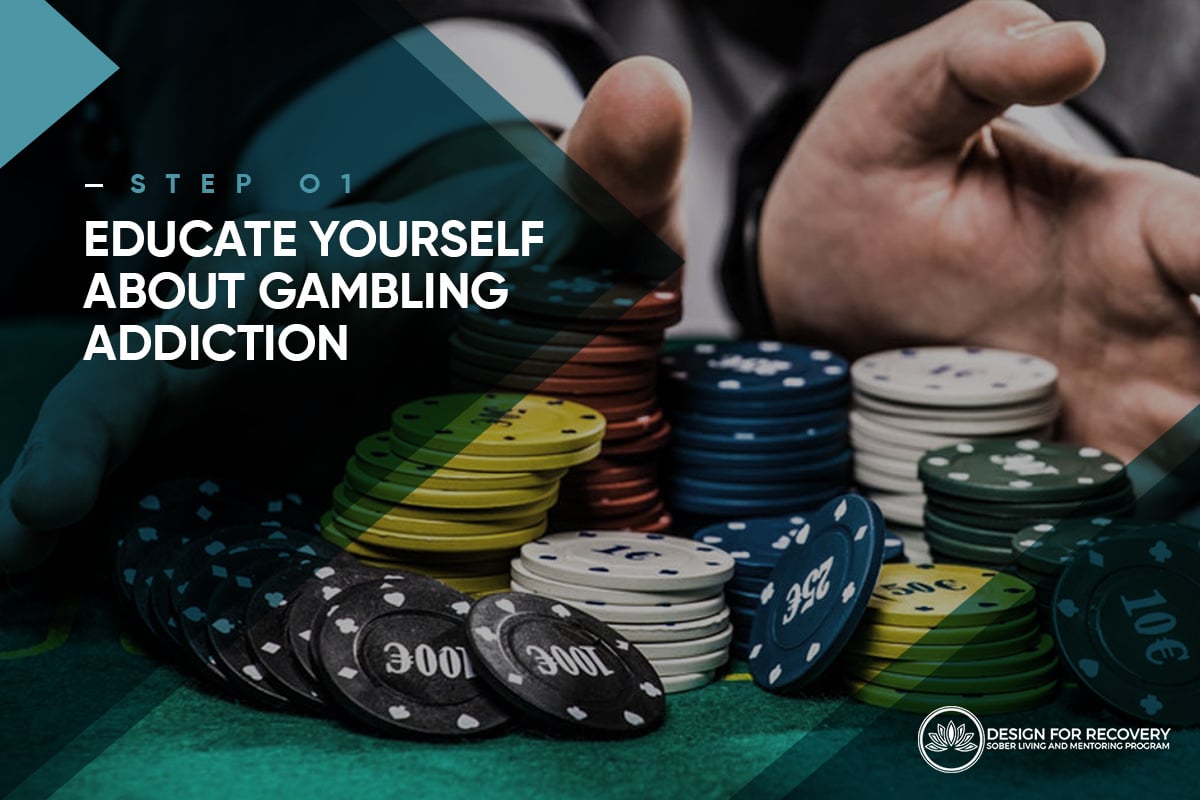
Understanding the Nature of Gambling Addiction
To help someone with a gambling problem, it’s crucial to understand the nature of the issue. Know that gambling addiction is not a sign of weakness or a lack of willpower. It’s a complex disorder linked to the brain’s reward system.
Learning About the Psychology Behind Addictive Behavior
Gambling can stimulate the brain’s reward system, much like drugs or alcohol can. This leads to compulsive behavior where the person with a gambling problem continues the cycle, despite the negative consequences.
Familiarizing Yourself with Available Resources and Treatment Options
Take the time to learn about gambling addiction treatment options and resources. This could include cognitive-behavioral therapy, medication, self-help groups like Gamblers Anonymous, or rehab programs. Remember, the right treatment varies for each individual.
Step 2: Approach the Addicted Gambler with Empathy and Understanding
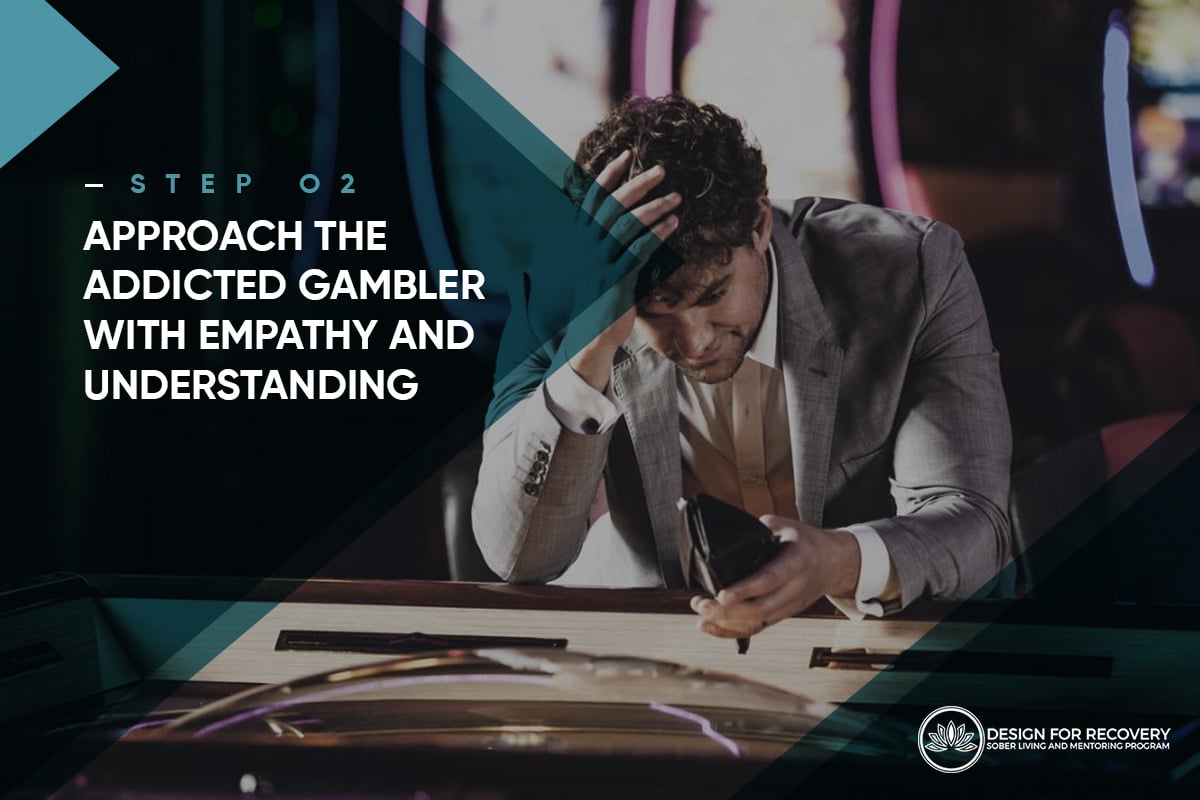
Creating a Non-judgmental and Supportive Environment
Create a safe and supportive environment when addressing your loved one’s gambling addiction. Make it clear that you’re there to help, not to judge or criticize their actions.
Expressing Concern and Offering Help
Express your concerns in a loving and respectful manner. It’s important to use “I” statements, such as “I’ve noticed you’re gambling a lot, and I’m concerned.”
Encouraging Open Communication About Their Gambling Habits
Open communication can help the compulsive gambler feel less alone and more understood. Encourage them to talk about their feelings and thoughts related to gambling.
Step 3: Encourage Professional Help
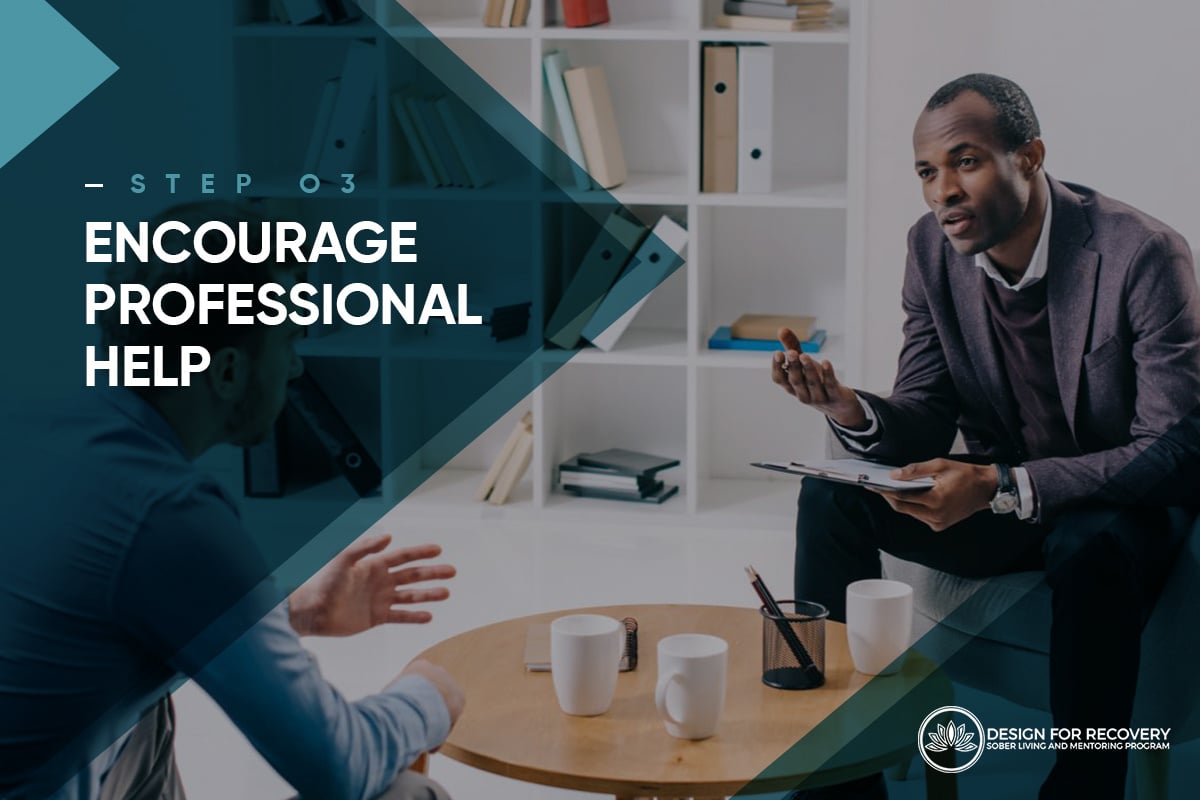
The Importance of Seeking Professional Assistance
Professional help is crucial when dealing with a gambling problem. Mental health professionals specializing in addiction can provide valuable guidance and treatment options.
Assisting in Finding Suitable Treatment Programs and Support Groups
Help your loved one research different treatment options. These might include individual therapy, group therapy, medication, or a combination. Support groups such as Gamblers Anonymous can also provide a sense of community and understanding.
Step 4: Establish Boundaries and Encourage Accountability
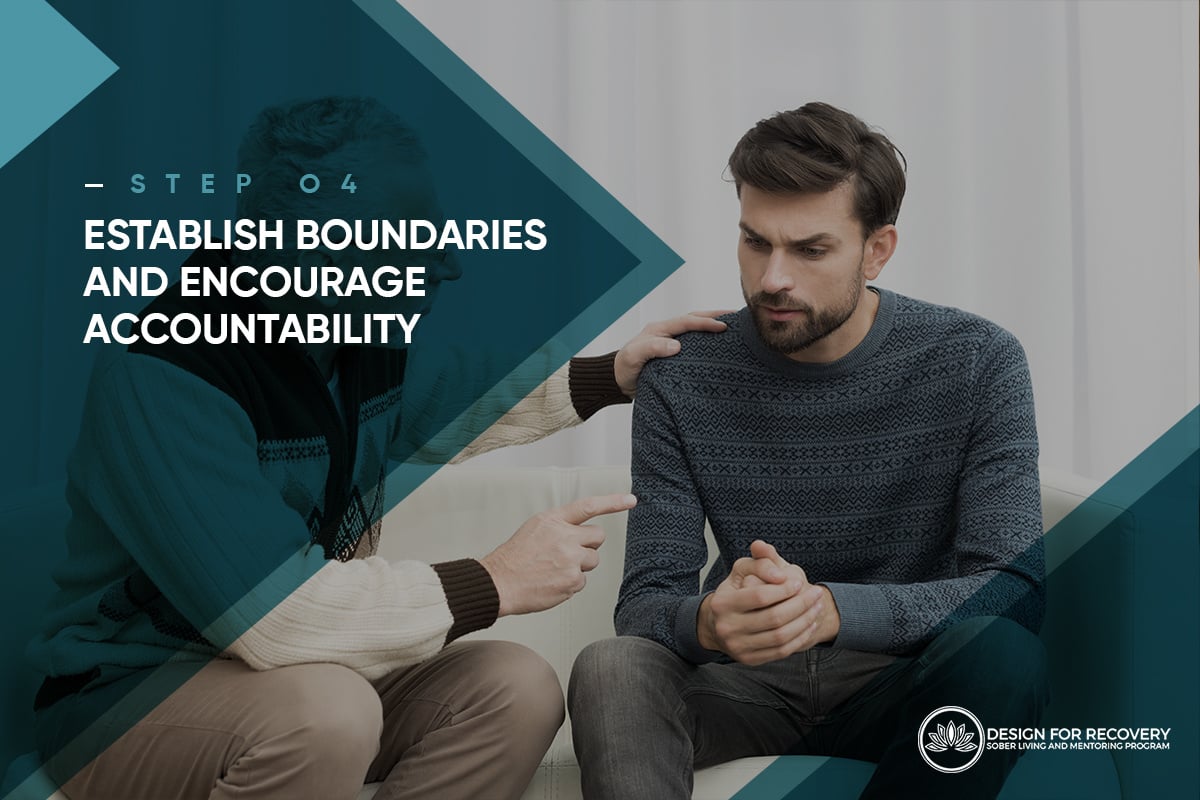
Setting Clear Boundaries and Expectations
It’s important to establish clear boundaries to protect both you and your loved one. This may involve financial boundaries, such as refusing to lend money or paying gambling debts.
Encouraging the Gambler to Take Responsibility for Their Actions
Part of the recovery process involves the compulsive gambler taking responsibility for their actions. Encourage this while avoiding blame or criticism.
Providing Guidance on Managing Finances and Avoiding Triggers
Assist your loved one in learning to manage finances. Encourage them to avoid triggers, such as visiting gambling websites or spending time in environments where gambling is prevalent.
Contact Design for Recovery Today!
Fill out our quick form to connect with a peer mentor and learn how our sober living community supports accountability, structure, and personal growth in recovery.
Step 5: Offer Emotional Support and Encouragement
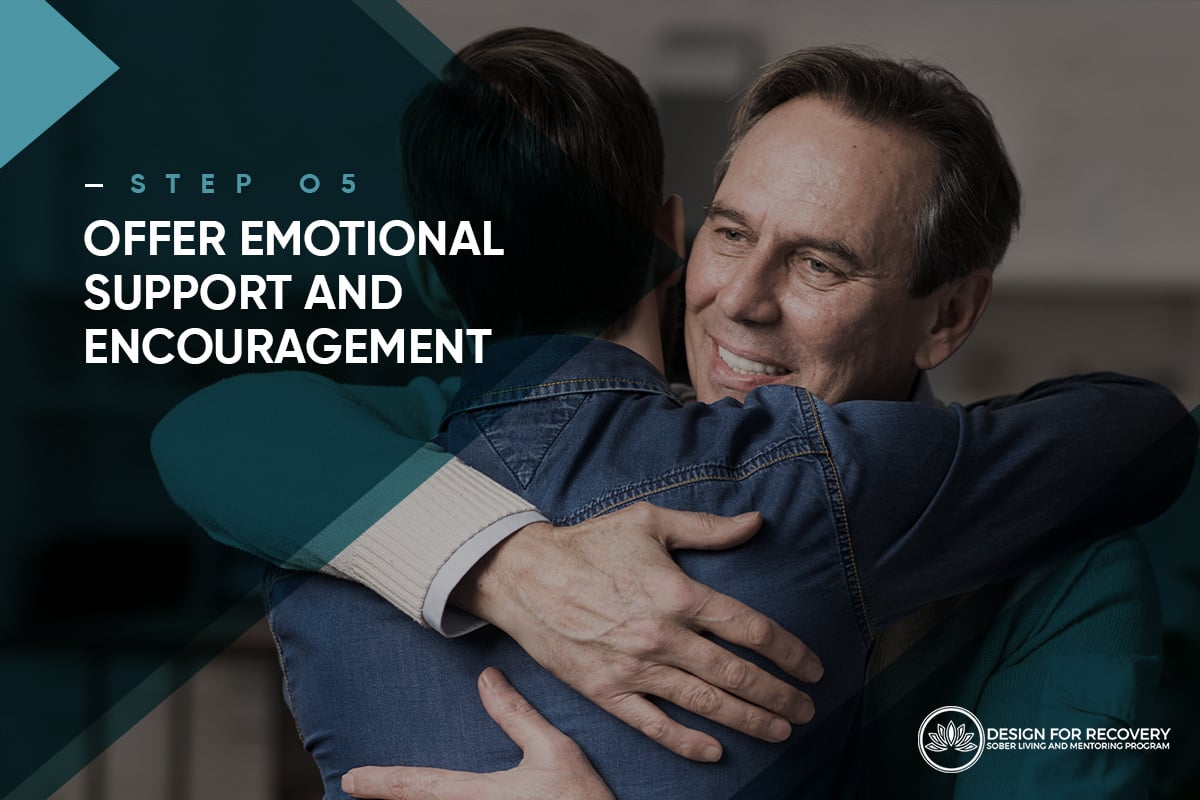
Being a Source of Emotional Support and Encouragement
Emotional support is crucial for someone dealing with a gambling problem. Show empathy, patience, and understanding, even when it’s difficult.
Listening Actively and Without Judgment
Active listening can go a long way in making your loved one feel heard and understood. Listen without judgment and offer supportive feedback.
Celebrating Milestones and Progress in Their Recovery Journey
Recognize and celebrate progress, however small. Whether it’s going one day without gambling or attending a meeting, these milestones are crucial in the recovery process.
Step 6: Help the Addicted Gambler Build a Support Network
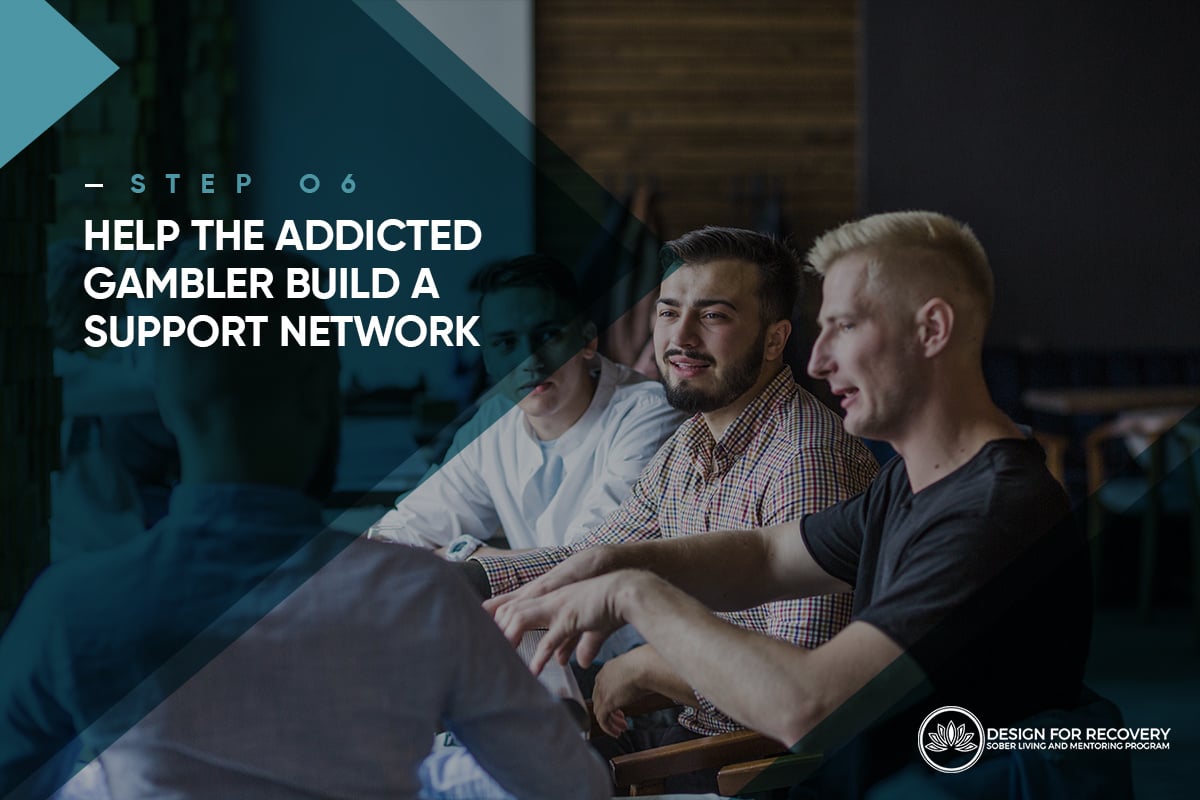
Encouraging the Involvement of Friends and Family Members
Encourage the person with the gambling problem to reach out to other family members and friends for support. The more people they have rooting for their recovery, the better.
Recommending Support Groups and Counseling Services
Support groups can provide a sense of community and shared experience. Encourage your loved one to attend meetings or join online communities focused on recovery from gambling addiction.
Assisting in Finding Local Community Resources for Addiction Recovery
Community resources can provide additional support and treatment options. This can include everything from therapy and counseling services to financial planning assistance.
Step 7: Promote Healthy Coping Mechanisms and Activities

Identifying Healthy Alternatives to Gambling
Replacing gambling with healthier activities can be a key part of recovery. This could include exercise, new hobbies, or spending time with family and friends.
Encouraging Engagement in Hobbies and Interests
Support your loved one in exploring new hobbies and interests. These can serve as healthy distractions and provide a sense of accomplishment and satisfaction.
Promoting Self-care and Stress Management Techniques
Self-care and stress management techniques like deep breathing, yoga, or meditation can be helpful for someone dealing with gambling addiction. Encourage your loved one to incorporate these practices into their daily routine.
Step 8: Recognize and Address Relapses
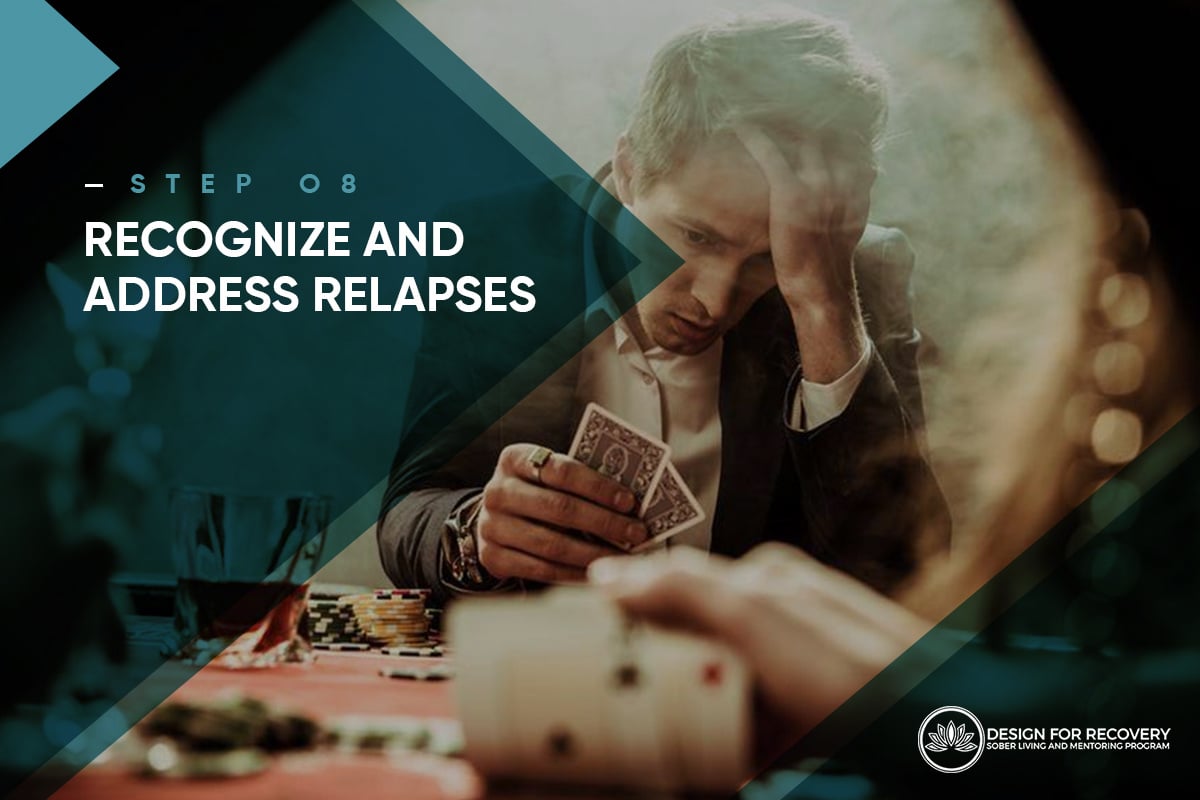
Understanding the Likelihood of Relapse in Addiction Recovery
It’s important to know that relapse is a common part of the recovery process. This doesn’t signify failure, but rather it’s an indication that adjustments need to be made in the recovery strategy.
Identifying Triggers and Warning Signs of Relapse
Help your loved one identify their gambling triggers. This can make it easier to prevent relapses before they happen. Common triggers could be emotional stress, financial worries, or exposure to gambling activities.
Providing Support and Assistance in Getting Back on Track
If a relapse occurs, reassure your loved one that this is just a bump in the road, not a dead end. Encourage them to get back to their treatment plan and support them in doing so. Remember to maintain a positive and non-judgmental attitude.
Step 9: Foster Long-Term Recovery and Prevent Relapse
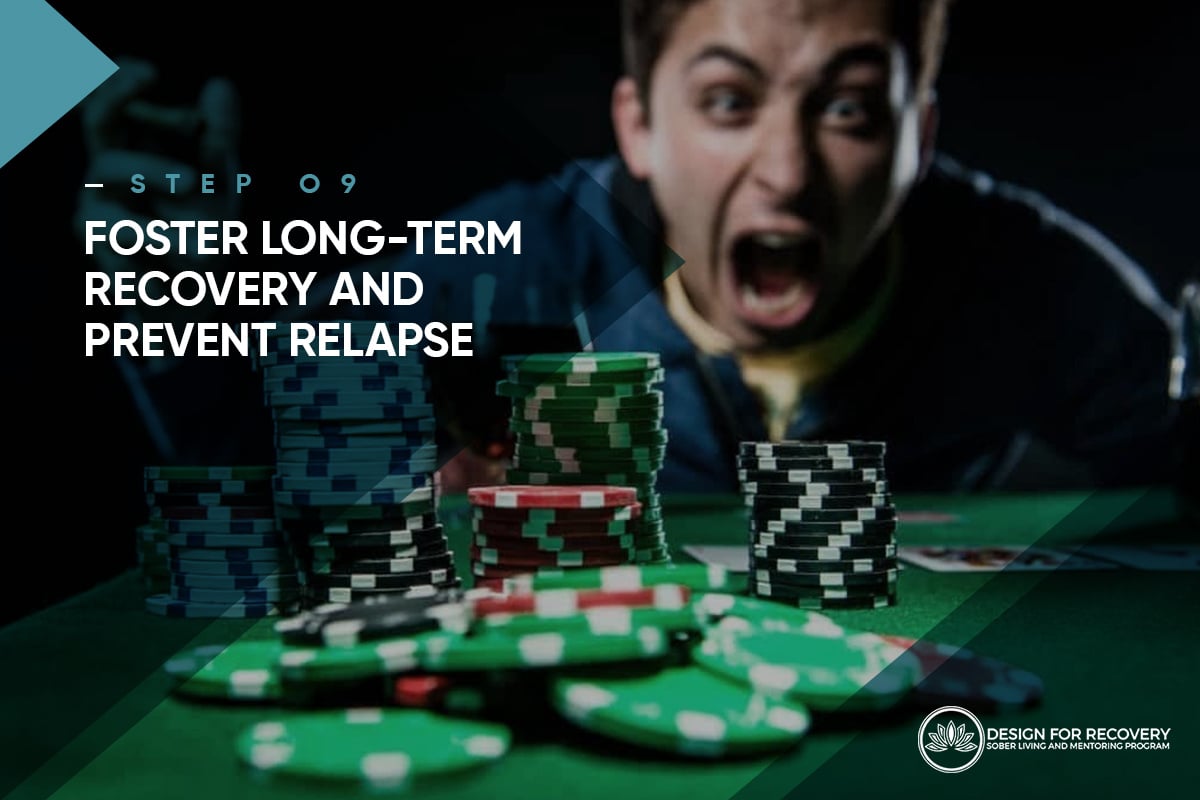
Assisting in Creating a Relapse Prevention Plan
A relapse prevention plan is crucial for long-term recovery. This includes identifying triggers, developing coping strategies, and planning for potential setbacks. You can assist your loved one in creating this plan, possibly in collaboration with their therapist or counselor.
Encouraging Ongoing Participation in Support Groups and Therapy
Continued participation in support groups and therapy is a critical component of lasting recovery. Encourage your loved one to consistently attend meetings and therapy sessions, even when they feel they’ve regained control.
Supporting the Development of a Healthy and Balanced Lifestyle
Promote the importance of a healthy lifestyle, including regular exercise, a balanced diet, and sufficient sleep. This can boost mental resilience and help manage stress, reducing the risk of relapse.
Begin Your Recovery Journey with Design for Recovery
Recognizing the impact of gambling addiction on you or a loved one can be overwhelming. But remember, you don’t have to face this challenge alone. Design for Recovery provides a supportive sober living environment to help residents build daily structure and accountability. Our peer mentors provide structure and accountability in a supportive community.
Don’t let gambling addiction dictate your future. Take the first courageous step towards a healthier, happier life today. Reach out to Design for Recovery for a free consultation and learn how we can assist you or your loved one in overcoming compulsive gambling.
The path to recovery starts here.
- Understanding Gambling Addiction and Its Impact
- Recognizing the Signs of Gambling Addiction
- Signs and Symptoms of Gambling Addiction
- The Consequences of Untreated Addiction
- Step 1: Educate Yourself about Gambling Addiction
- Step 2: Approach the Addicted Gambler with Empathy and Understanding
- Step 3: Encourage Professional Help
- Step 4: Establish Boundaries and Encourage Accountability
- Step 5: Offer Emotional Support and Encouragement
- Step 6: Help the Addicted Gambler Build a Support Network
- Step 7: Promote Healthy Coping Mechanisms and Activities
- Step 8: Recognize and Address Relapses
- Step 9: Foster Long-Term Recovery and Prevent Relapse
- Begin Your Recovery Journey with Design for Recovery
Begin Lasting Sobriety Now!
Frequently Asked Questions
Supporting a loved one struggling with a gambling addiction can be challenging. It’s important to encourage them to seek professional help, such as counseling or a self-help group. Be patient, non-judgmental, and remind them that recovery is possible.
Gambling online can pose the same risks as gambling in person if not done responsibly. It can lead to the same issues associated with gambling problems if it becomes excessive or compulsive.
There are many healthy ways to relieve stress, such as regular exercise, meditation, engaging in hobbies, or attending a public speaking class. It’s important to find positive, non-harmful outlets to manage stress.
Yes, compulsive gambling can lead to serious financial issues, including debt, bankruptcy, and the inability to manage everyday expenses.
Yes, part of the recovery process often includes learning to solve financial problems caused by gambling. This may involve seeking support from credit counselors or financial advisors.
While some people can change their gambling behavior independently, most people benefit greatly from professional support and treatment programs.
Feeling ashamed about one’s own situation can indeed be a roadblock to recovery, as it might prevent the person from seeking help. It’s important to remember that seeking help is a sign of strength, not weakness.
The best time to seek help is as soon as one recognizes signs of problem gambling. Early intervention can lead to more effective recovery outcomes.
Rennert, Lior et al. “DSM-5 gambling disorder: prevalence and characteristics in a substance use disorder sample.” Experimental and clinical psychopharmacology vol. 22,1 (2014): 50-6. doi:10.1037/a0034518




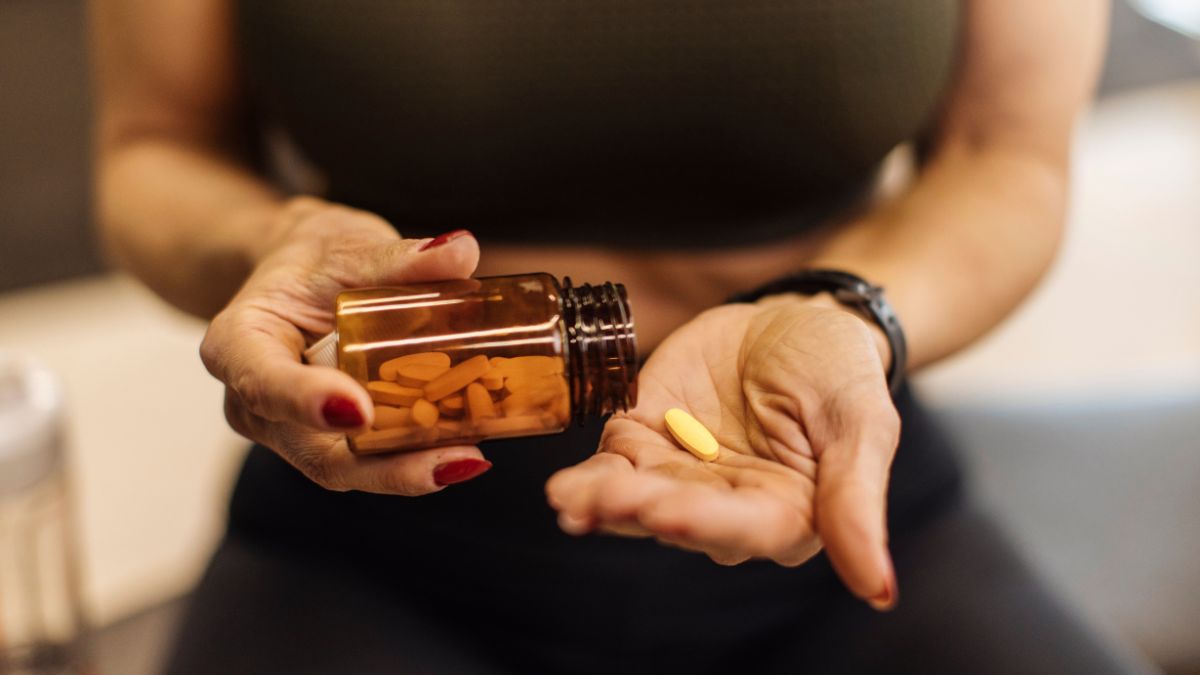


Written By
David Beasley